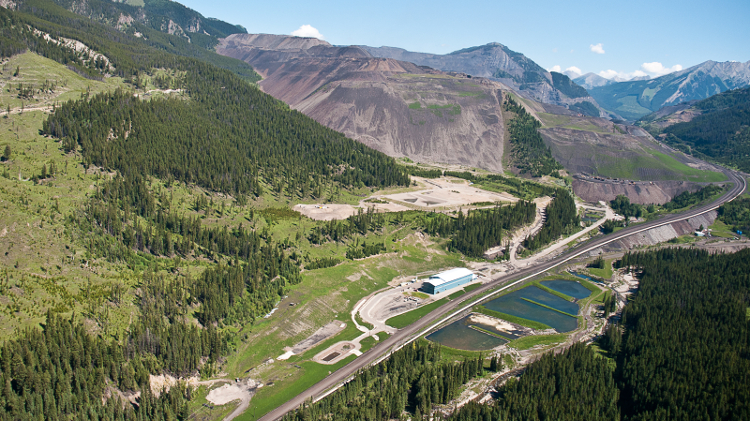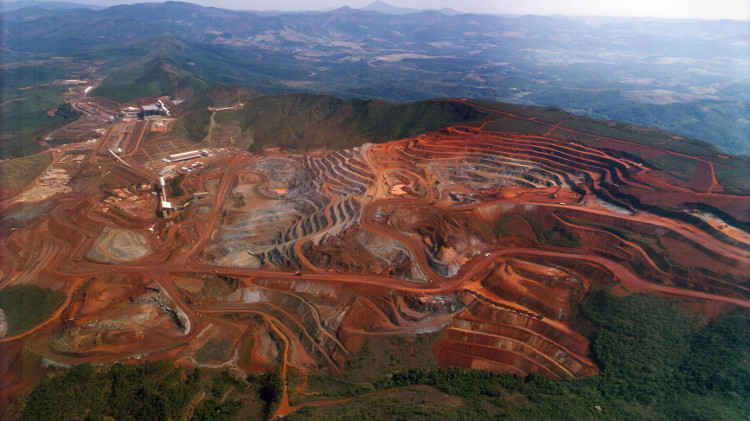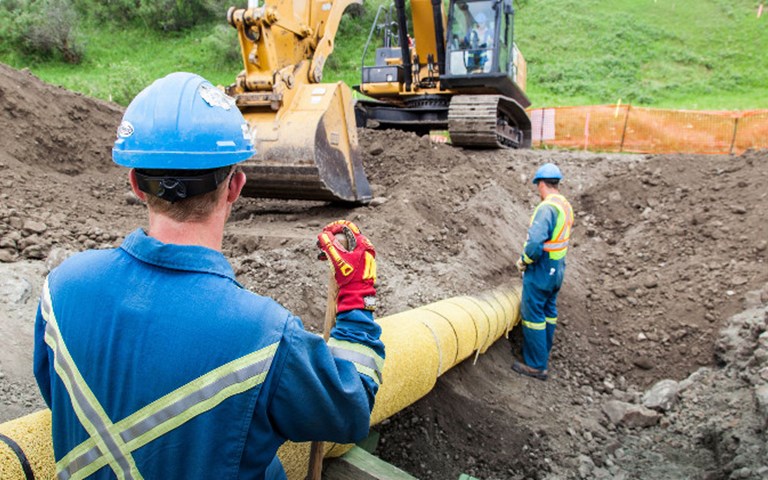Pipeline maintenance and integrity work at a TransCanada pipeline. French insurance giant AXA SA said Tuesday it would divest from the oil sands and pipelines business, and discontinue further investments in either. Courtesy of TransCanada Corp.
Updated with comment from the Canadian Association of Petroleum Producers
The World Bank will no longer finance upstream oil and gas projects after 2019, group president Jim Yong Kim said on Tuesday.
The announcement came during the One Planet Summit in Paris hosted by French President Emmanuel Macron, which marked the two-year anniversary of the United Nations Paris Agreement on Climate Change.
“We are determined to work with all of you to put the right policies in place, get market forces moving in the right direction, put money on the table and accelerate action,” Kim said in his speech. “That’s the only way we can meet the commitments we made two years ago, and finally begin to win the battle against climate change.”
Of the World Bank’s $280-billion portfolio, about one per cent is upstream oil and gas investments, including loans and equity stakes, according to a World Bank spokesperson.
Upstream projects are those that deal with exploration of oil and natural gas fields, and drilling and operating wells to produce oil and natural gas. The World Bank said it would continue to finance midstream and downstream natural gas investments "for transport and distribution to consumers and for power generation."
The group will make exceptions for oil and gas projects in the “poorest countries” where there the project could provide energy access to citizens, “and the project fits within the countries’ Paris Agreement commitments,” Kim said.
Ben Brunnen, vice-president of oil sands, fiscal and economic policy at the Canadian Association of Petroleum Producers (CAPP), said it was "good news" that the development bank would continue to "invest in the energy value chain" by financing midstream and downstream projects "because oil and gas derive a whole series of products that consumers will use in their everyday lives."
He also called the exception "quite important" because "energy is one of the greatest factors for economic security and prosperity. The World Bank recognizes the importance of looking at this on a case by case basis and...helping to pull some of the poorest countries out of poverty."
The World Bank also promised to annually report on greenhouse gas emissions from the investment projects it is financing in key sectors like energy starting in late 2018, and will begin applying a shadow price on carbon during its economic analysis of projects in high-emitting sectors.
Kim said the Washington-based development bank was on track to meet its commitment of 28 per cent of its lending going toward climate action by 2020.
Related: TransCanada scraps Energy East and Eastern Mainline pipelines due to changed circumstances, including environmental factors
Also on Tuesday, AXA SA, the world’s third-largest insurer, announced it would divest around $1 billion (€700 million) from oil sands producers and pipelines and discontinue further investments in either.
The French insurance giant said it made the decision because oil sands are “an extremely carbon-intensive form of energy and a serious cause of environmental pollution."
Brunnen said the association appreciated the "spirit" of the announcement but said that "at the end of the day we think decisions to divest of oil sands, oil and gas companies are shortsighted." He highlighted the International Energy Agency's (IEA) World Energy Outlook 2017 report, which said that global energy demand would increase 30 per cent by 2040, and expected natural gas use to rise by 45 per cent. The report also expected oil demand to "continue to grow to 2040, albeit at a steadily decreasing pace."
"That supply has to come from somewhere," Brunnen said. "The oil sands in Canada are some of the most responsibly developed sources of oil globally."
AXA also reported that it would divest from companies that derive more than 30 per cent of their revenues from coal. That goal will increase the insurer’s divestment from the coal industry five-fold, it said, to reach approximately $3.6 billion (€2.4 billion). The company previously decided in 2015 to divest around $750 million (€500 million) from companies that derive more than 50 per cent of their revenues from coal.
On top of divesting from the two sectors, AXA said it would stop insuring new coal construction projects and the oil sands and pipeline business.
“A +4C world is not insurable. As a global insurer and investor, we know that we have a key role to play,” said Thomas Buberl, AXA’s CEO, in a statement Tuesday. “Unsustainable business will become un-investable and uninsurable business.”
However, Brunnen said he did not expect the move to have a large effect on the industry. "There is a pretty sufficient pool of insurance funds and other investments that will replace any divestment that occurs through a select number of companies," he said. "The companies that tend to divest are the ones that tend to be underexposed [to oil sands in their portfolios]."
AXA also announced it would quadruple its original $4.5 billion (€3 billion) investment in green investments by 2020, announced in 2015, to $18.1 billion (€12 billion).




